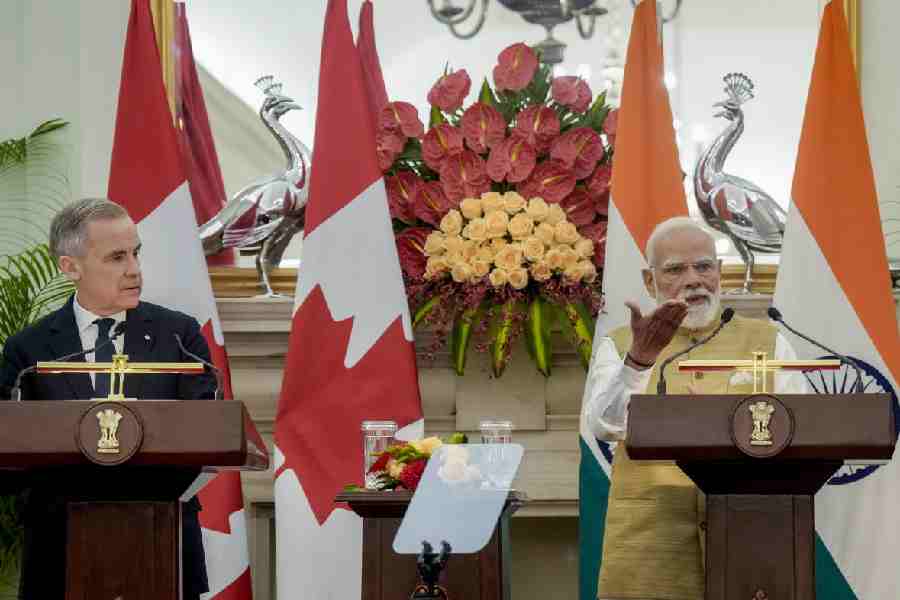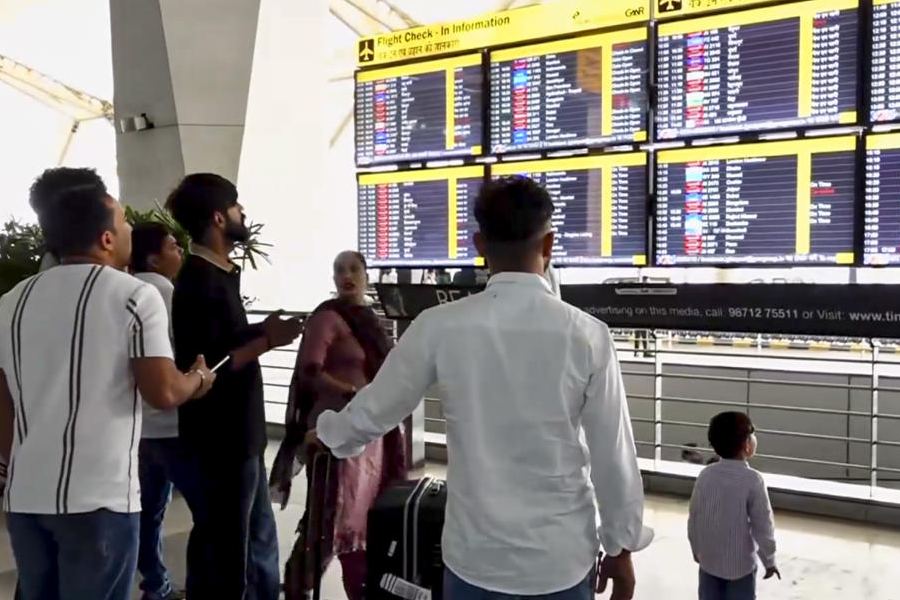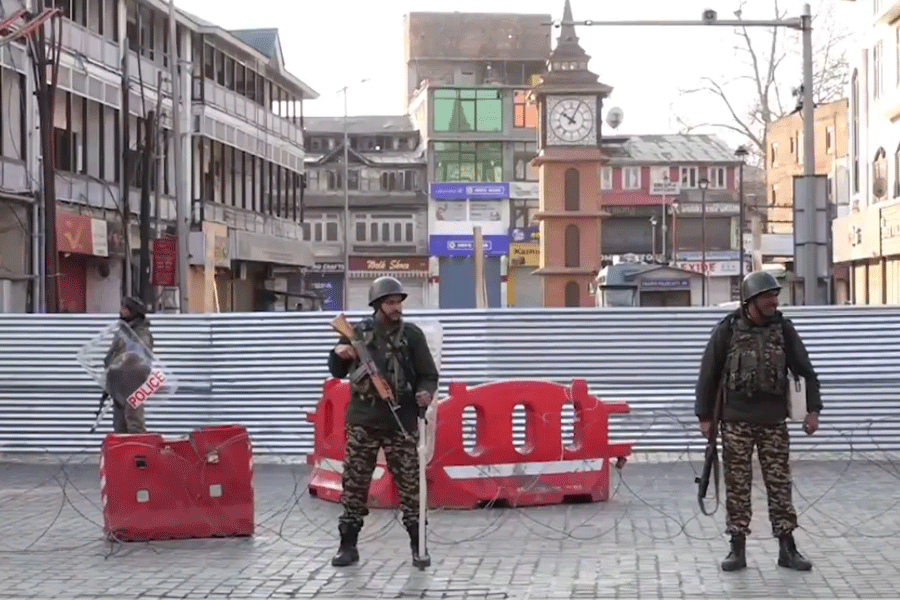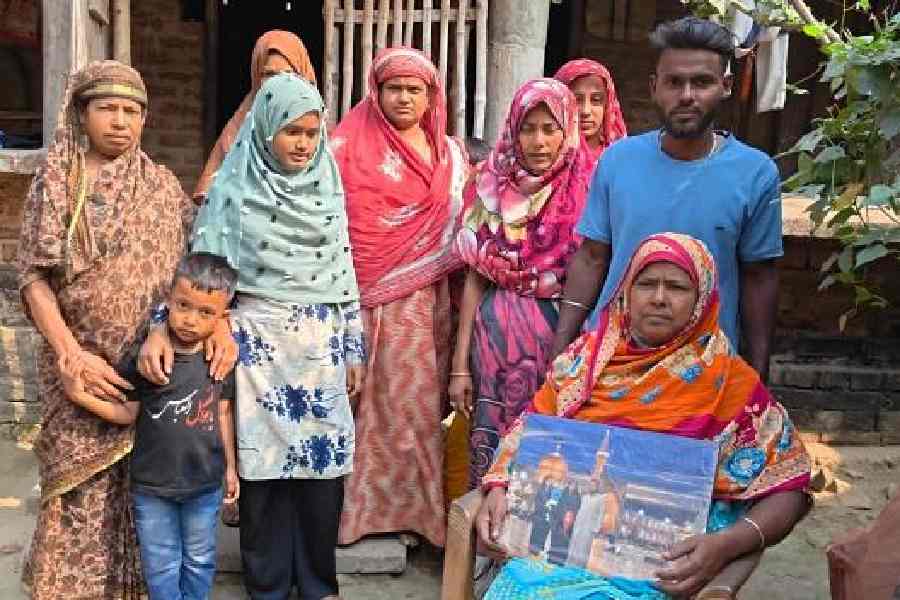 |
| The Buxa Tiger Reserve |
The longstanding conflict between the forest department and forest and tea garden tribals continues to take its toll of human lives in the Dooars and Terai.
At least 20 forest villagers — poor and mostly young tribals — have died in firing by forest guards in the past decade and a half, rights bodies allege.
Forest minister Hiten Barman admitted deaths in foresters’ firing but his office did not provide details except for confirming 13 deaths since 2007, including five in 2011-12.
Ravinder Pal Saini, field director of the Buxa Tiger Reserve bordering Bhutan, however, admitted that 11 had died in firing at the reserve alone till 2009.
Repeated efforts to ascertain the number of firings or details of the dead and injured from Aranya Bhavan, the forest department headquarters at Salt Lake, failed. Apparently, it does not bother to keep records of the human tragedy.
The state forest department website shows records of forest-related crimes but does not mention firings or give figures of deaths and injuries.
The latest alleged victim was Milan Rawtia, 39, a tribal worker from Loha Singh tea garden in the Terai’s Naxalibari area. His wife Reshmi said Milan had entered the adjoining Taippo forest to fetch his cow around 4pm on June 21 when the forest guards shot him and took him to hospital where he was declared dead. He was accused of felling timber illegally.
Neither the forest department nor the police informed his family about what led to his death, she said. Activists of the Uttarbanga Bana Sramajibi Mancha, a forest rights group, said villagers led by local politicians were told about Milan’s alleged crime only after a road blockade the next day.
Following “negotiations”, forest officials are said to have paid Rs 25,000 to the victim’s family and promised a casual labourer’s job to one of his two teenaged sons.
On April 28 this year, Anil Kheria, a young tribal from Haldibari tea estate in Banarhat, was shot dead inside the Moraghat forest, his family said. Anil had allegedly gone to collect firewood with his friends around 3pm and was shot by forest guards on the way back. He ran for his life and died at his home.
Minister Barman said Anil was involved in illegal felling. “The boy was shot when he and his accomplices used slingshots to ward off forest guards,” he said.
Jatiswar Bharati, an activist of the Association for the Protection of Democratic Rights (APDR) in Jalpaiguri who has probed the case, contested the claim.
“The forest officials first said it was accidental firing but later claimed Anil and his friends had attacked the foresters. Does the minister want us to believe that slingshots invited firing?’’ he said.
Ritu Oraon, Anil’s neighbour and a tribal Congress member of the Haldibari panchayat, said no action had yet been taken on the family’s FIR against forest employees.
Tribals and right activists claim that most of the victims were shot at without provocation while fetching firewood and non-timber minor forest produce such as tubers, fruits and mushrooms — activities that are traditionally and legally permitted. Some others apparently entered the forests to look for lost cows or to fish.
Firing survivors, both men and women, still face criminal charges while the police hardly take cognisance of counter-complaints against the foresters, goes the allegation.
“We want a high-level inquiry into these killings and other atrocities by forest officials on innocent tribals,’’ Mancha convener Lal Singh Bhujel said.
Forest officials claim that all those slain were in cahoots with the timber mafia.
“Why is there no hue and cry over the felling of thousands of trees? We don’t stop villagers from collecting firewood. But what were these so-called innocent victims doing in the forest in the dead of night?” asked Saini, the Buxa reserve official.
“Some of our staff have been facing cases following firings and our local offices have been vandalised during politically motivated demonstrations after such incidents.”
He said the forest guards fired after being “outnumbered and attacked by armed illegal tree fellers” and that “targets cannot be ascertained in the dark at those hours’’.
Suman Goswami, an APDR activist in Alipurduar, countered that despite forest department claims about the victims being heavily armed, “no forester has died in these so-called encounters’’.
Goswami had probed the killing of Suraj Kharia, a teenager from Newlands tea garden in Kumargram in the Buxa reserve, in January 2009.
Minister Barman said: “I can’t take responsibility for what happened earlier. But we know that the city-based timber mafia is using forest and tea tribals, including their women, as carriers of illegally chopped logs.”
He said the Sashastra Seema Bal, a central paramilitary force deployed in the Nepal and Bhutan borders, as well as state armed police would be pressed into action to counter the superior firepower of the mafia in the Buxa reserve. Six patrol boats will criss-cross the forest rivers to look out for timber gangs and recover the clandestinely chopped logs the mafia transports downstream along the tide.
Although the state’s forest cover has risen from 13 per cent to 16 per cent, the density of the reserved forests, particularly in the Buxa reserve, has dwindled because of felling by gangs operating from across the Bhutan border, he said.
“We can’t set guidelines for the police or the Sashastra Seema Bal regarding firings. The forest guards will follow our rules,’’ Barman said.
Tribals and activists fear that this latest move would only increase the firings. “This will lead to more tribal deaths while the politically powerful mafia will remain safe. The government must shun this top-down policy and take the gram sabhas into confidence over forest protection in keeping with the spirit of the forest rights act of 2006,’’ Mancha convener Bhujel said.
In the Bengal Assembly, Opposition members have cited how, despite objections from senior forest officials, Barman had taken the initiative to regularise unlicensed Dooars sawmills that often cater to the timber mafia.
“I have taken the initiative since it involves the livelihood of thousands, denial of which will lead to social tension,’’ Barman reasoned. This political pragmatism isn’t extended to the marginalised tribals, though.
Gautam Deb, Trinamul minister for north Bengal development, spoke of a “balanced view”.
“We have received complaints from the forest villagers. Chief minister Mamata Banerjee wants the law-enforcers to be more humane in dealing with the tribals while protecting the forests and wildlife. They need to be more careful about firing,” Deb said.











